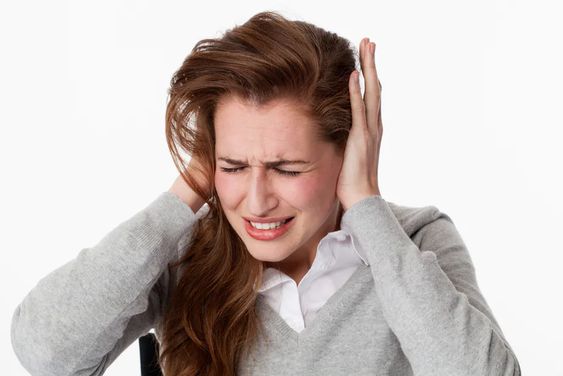Causes of Tinnitus
Introduction
Tinnitus is a common condition that causes people to hear ringing, buzzing, hissing, roaring, whistling, or other sounds in their ears or head. These sounds are not external and cannot be heard by other people. Tinnitus can be intermittent or constant, and it can vary in volume. While it is not a serious condition on its own, it can be a symptom of an underlying medical condition, such as hearing loss, ear injury, or circulatory system problems.

Tinnitus is a widespread problem, affecting millions of people worldwide. The exact cause of tinnitus is often unclear, but it is often associated with damage to the auditory system, which can occur with age, exposure to loud noise, or certain medical conditions. It can also be triggered by stress, certain medications, and caffeine. While there is no cure for tinnitus, there are several treatments available that can help manage the symptoms and improve quality of life for sufferers.
As previously mentioned, tinnitus can be caused by a variety of factors. These factors include:
- Hearing loss: Age-related hearing loss and noise-induced hearing loss are common causes of tinnitus.
- Ear infections and blockages: Earwax buildup, ear infections, and other blockages can also trigger tinnitus.
- Head and neck injuries: Trauma to the head or neck can damage the auditory system and lead to tinnitus.
- Medical conditions: Tinnitus can be a symptom of other medical conditions, including Meniere's disease, cardiovascular disease, and thyroid problems.
- Medications: Certain medications, such as antibiotics, cancer drugs, and antidepressants, can cause tinnitus as a side effect.
- Other factors: Stress, caffeine, alcohol, and smoking can also contribute to or worsen tinnitus.
Treatments for Tinnitus
Although there is no cure for tinnitus, there are various treatment options available that can help manage the symptoms and minimize its impact on daily life:
- Sound therapy: Using external noise to mask the tinnitus sounds can be helpful. This can include white noise machines, fans, or soothing music.
- Hearing aids: If tinnitus is caused by hearing loss, hearing aids can amplify external sounds and make the tinnitus less noticeable.
- Cognitive-behavioral therapy (CBT): CBT can help individuals change their negative thoughts and reactions to tinnitus, reducing its perceived severity.
- Tinnitus retraining therapy (TRT): This therapy combines sound therapy with counseling to help people habituate to their tinnitus and find relief.
- Masking devices: These devices, worn like hearing aids, produce a neutral sound that helps mask the tinnitus noise.
- Lifestyle changes: Reducing stress, limiting caffeine and alcohol intake, and getting enough sleep can help improve tinnitus symptoms.
Living with Tinnitus
Tinnitus can be a frustrating and challenging condition to live with. If you are struggling with tinnitus, remember these tips:
- Seek professional help: Consult with an audiologist or other healthcare professional to determine the underlying cause of your tinnitus and receive appropriate treatment.
- Protect your hearing: Wear earplugs in noisy environments and limit exposure to loud noises.
- Practice stress management techniques: Engage in relaxation techniques such as deep breathing exercises, yoga, or meditation.
- Join a support group: Connecting with others who experience tinnitus can provide emotional support and helpful tips for managing the condition.
While tinnitus may not have a cure, with the right strategies and professional support, individuals can effectively manage their tinnitus and minimize its impact on their lives.





